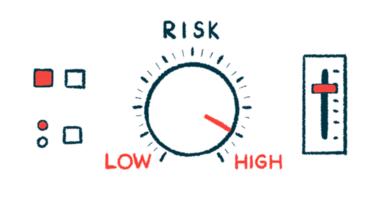Epilepsy can more than double the risk of Parkinson’s, study finds
Work supports link between two disorders, urges research into reasons why

People with epilepsy are at more than double the risk of developing Parkinson’s disease than people without epilepsy, but a cause-and-effect relationship has yet to be established, according to a large study by researchers in South Korea.
“To the best of our knowledge, there are three case-control studies … which described [an] increased prevalence of epilepsy before the diagnosis of [Parkinson’s] suggesting the potential association of epilepsy” with a subsequent Parkinson’s diagnosis, the researchers wrote.
But first, they added, it’s “necessary to identify the real-world estimation of actual [Parkinson’s disease] incidence in patients with epilepsy.”
The study, “Increasing incidence of Parkinson’s disease in patients with epilepsy: A nationwide cohort study,” was published in the Journal of the Neurological Sciences.
Epilepsy is considered to be a possible early symptom of Parkinson’s
Parkinson’s is characterized by motor symptoms such as tremor, stiffness, and slowness of movement. While uncommon, some people with the disease also experience seizures, sudden bursts of uncontrolled electrical activity within the brain.
Recent work from the U.K. identified epilepsy, a condition marked by recurrent seizures, as a risk factor for Parkinson’s, and as among disease symptoms evident for up to 10 years before a diagnosis. Also of note, an anti-seizure medication called zonisamide is approved as an add-on Parkinson’s therapy in Japan and has shown a potential to ease motor symptoms for some patients in tests elsewhere.
However, it remains unclear how many people with epilepsy go on to develop Parkinson’s.
Using data collected from 2003 through 2007 as part of the National Health Insurance Service Health Screening Cohort in Korea, researchers investigated how often Parkinson’s occurred in people with or without epilepsy.
Records covering a total of 10,510 adults, ages 41 to 80, were included; 5,255 had epilepsy and were being prescribed anti-seizure medications, the other 5,255 people did not and served as controls.
Over up to 11 years of follow-up, 85 of the adults with epilepsy and 57 without epilepsy went on to be diagnosed with Parkinson’s. The number of new Parkinson’s cases (incident cases) each year was 21.38 for every 10,000 people among those with epilepsy; among controls, it was 11.18.
While a higher Parkinson’s risk seen with epilepsy, reasons are not clear
After adjusting for factors such as age, sex, economic status, residential area, and heart and brain diseases, people with epilepsy had a significant, 2.19 times higher risk of developing Parkinson’s than those without it.
In people with status epilepticus — a prolonged, continuous seizure or seizures that occur one after another — the risk was higher, estimated to be 2.55 times greater.
Parkinson’s risk with epilepsy also increased with age, with those 51 to 60 years old having a 2.71 times higher risk of Parkinson’s than those ages 41 to 50. In people ages 61 to 70, the risk was 4.88 times higher, and in the oldest group studied, those 71 to 80, it was nearly 10 times as high.
Still, “the objectives of this study were not to assert that it was a novel finding that the risk of [Parkinson’s] increased in epilepsy, but to estimate the actual contribution of epilepsy to the incidence of [Parkinson’s], regarding the possibility that epilepsy was a [disease] risk factor,” the researchers stressed.
People with a past stroke also had nearly double the risk of developing Parkinson’s compared with whose without a stroke. Adults who exercised one or twice a week, in turn, had nearly half the Parkinson’s risk of those who never exercised.
While these findings suggest that epilepsy can increase the risk of developing Parkinson’s, the mechanisms linking the two remain unclear.
“This was the first study to analyze the cumulative incidence of [Parkinson’s] over time in epilepsy patients and compare it with that of the control group,” the researchers wrote, noting they could not “perfectly define the correlation” between the disorders.
“Further research is warranted to prove a causal relationship between these two brain conditions,” they added.







